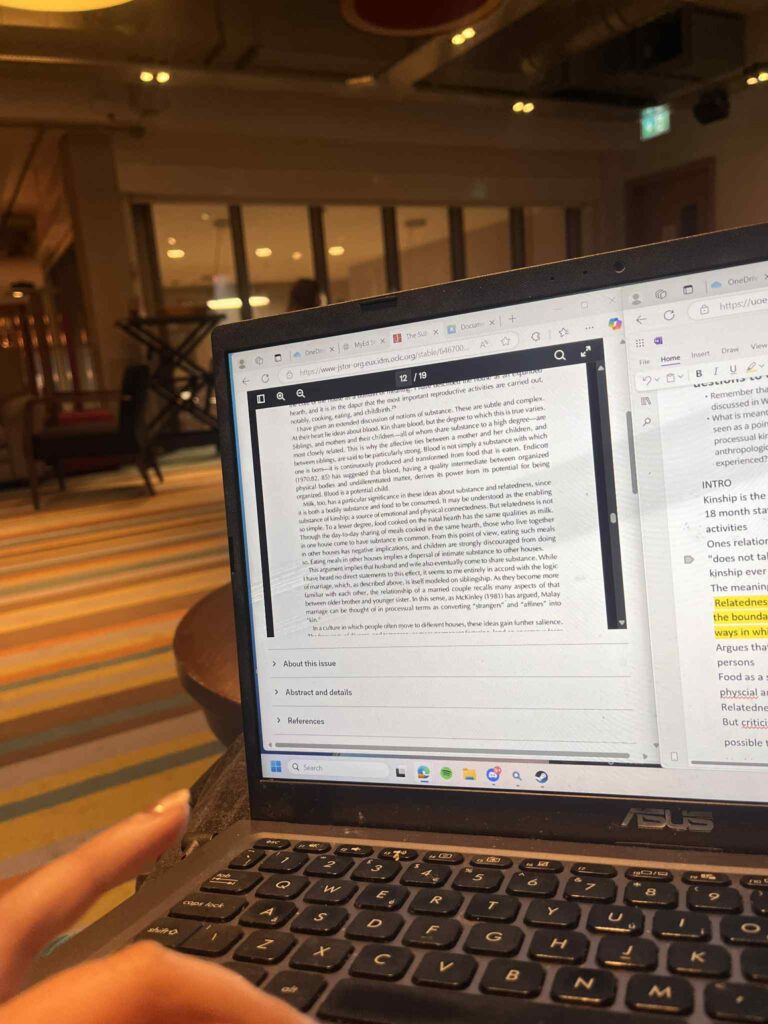
Opinion: How is Edinburgh Uni expecting us to pay so much for just four hours of classes?
Coming from an English literature student, the hours don’t match up to the extortionate fees
I joined this university in 2022. For my first two years, the core English Literature courses counted for three hours of my weekly timetable.
This didn’t matter quite so much because we also had electives to keep ourselves busy. If you chose Literature-heavy electives, you could get more hours of your degree that way. In my case, my weekly three hours of English went up to five, which went alongside any other pre-Honours courses.
Then the Honours Years arrive, the years where you’re supposed to knuckle down to what is meant to be the core part of your degree, the part that counts towards your overall grade.
In my third year, we had a total of five hours a week. We took three courses per term, and each course had just one class per week. For my fourth year, the five weekly hours were reduced to four.
Although this does not include the time with our supervisors discussing our dissertations, those meetings would only add about three hours of contact time to a month’s worth of learning.
But for our time in the room with a tutor sharing their expertise – the education for which Student Loan Companies across Wales, England and Northern Ireland fork out £9535 and anything up to £26,500 for International students – we only get four hours.
Some students are paying £9535 a year for two short weekly classes. International students studying humanities subjects pay more than double that amount for those same two classes.

Even for Scottish students, who don’t require a tuition fee in Scotland, the level of teaching still feels inadequate. A fourth-year Scottish-born History student said, “I’ve moved across the country to receive a maximum of four hours of contact time a week.
“It doesn’t seem fair when you consider the rent and the sacrifices I’ve had to make to move away from home.”
This is unprecedented when compared to other departments. In the Physics department, one student told me that he has been given 21 hours a week for his final year.
There is a case in favour of the Humanities departments’ lower contact hours. They may wish to foster independence and autonomy. Professional academics often spend time researching and reading in their own bubble on their own terms, and this experience is reflective of that.
It is also reasonable that the Humanities will hold fewer hours of tutorial time than the sciences. The Humanities do not require in-lab experiments, and a lot of our work is done via reading texts and taking notes, which is obviously private work done outside of tutorials.
But four weekly hours is arguably disproportionate to the amount of money students put into their education.
An international postgrad friend of mine recently asked me: “Aren’t there more classes I can take?”, with a hint of mild desperation. He is in the unenviable position of coming over here as a full-time postgraduate student, with very little time in the classroom to show for it.
Other undergraduate students have expressed similar frustrations. “I’m trying to stay positive about it,” one source told me, but admitted it would be much better “if there were places we had to be, like lectures or tutorials. Instead of trying to fill all your time yourself.” Another classmate of mine described it as a “con.”

At least we get time to enjoy the sunset?
Even the tutors have mirrored these sentiments. One of my third-year Honours tutors wrote in an email: “Can’t do anything about the contact time, unfortunately, though frankly I would enjoy talking about [course name] some more.”
So this appears to be a recognised issue among students and staff.
I understand that university is about helping us learn for ourselves. It is also worth noting that when we are in the tutorials, the tutors are nearly always brilliant. The English Department has some truly phenomenal academics, and our student experience greatly benefits from that.
University is what you make it. I keep myself busy with my degree, as do many of the students I know. I enjoy the independence to research what I want to research.
However, a healthy balance can be struck where we get more of our money’s worth. Right now, Edinburgh University’s humanities departments may be yet to find that balance.
A University of Edinburgh spokesperson said: “We work hard to provide a valuable learning experience for all of our students, which includes high standards of teaching and academic support alongside our first-class study and research facilities. When students come to Edinburgh, they also gain access to a huge range of opportunities to nurture their development here and beyond. This includes guidance on independent learning and Challenge courses to encourage innovative approaches to studying to help students meet the demands of their degrees.
“The level of tutoring support is determined based on requirements for each course. We routinely reflect on and review our curriculum and our students are valued contributors to this process. We are keen to listen to and work directly with our students to shape our curriculum and ensure our students feel fully supported in their learning.”




















